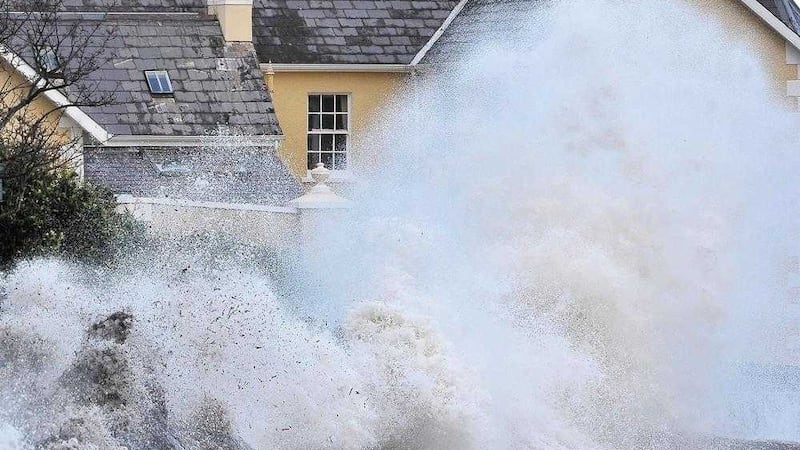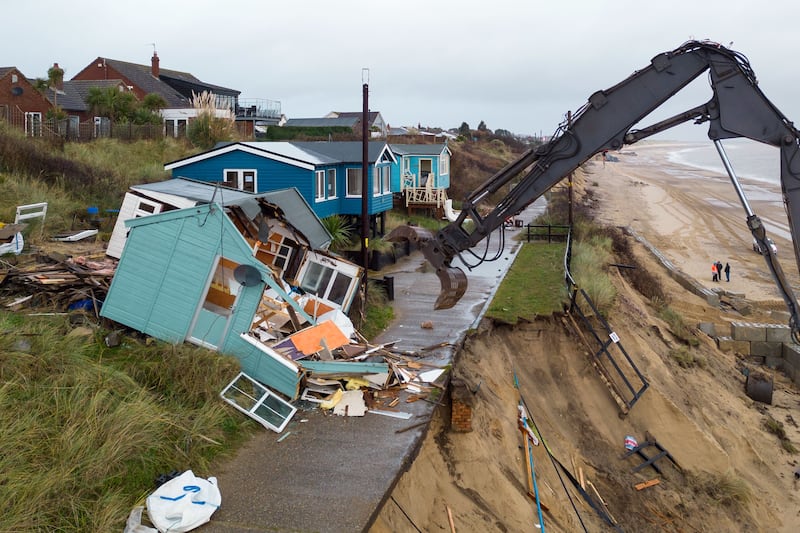Coastal erosion, which is threatening buildings, roads and railways, is to be tackled by a new forum.
With the north facing greater increases in storm surges and sea level rise, a special taskforce has been created by regional development minister Michelle McIlveen.
Ms McIlveen said she had an interest in the issue given she lives in the Ards area where the impact of coastal change is obvious.
Britain and Northern Ireland experienced their worst winter storms in two decades in early 2014.
A huge tidal surge driven by gale force winds battered the north's coastline. Parts of the Ards peninsula encountered the worst of the weather.
Around 45,000 sandbags were used to bolster defences, protect key infrastructure sites and secure homes in at risk areas.
Attending the first meeting of the new forum this week were representatives from central and local government, including environment minister Mark H Durkan and Rivers Agency, together with the National Trust and the Ards Peninsula Coastal group.
Phil Davidson, Wildlife and Countryside Adviser for the National Trust, said the north had almost 500 miles of coast and there was an immediate need for action.
"We are likely to be facing even greater increases in storm surges and sea level rise in the future. However, there is currently no coordinated approach to inform decision making on how best to sustainably manage the vulnerable areas of coastline," Mr Davidson said.
"So we warmly welcome this initiative and look forward to working closely with our partners in the coming months and years."
Ms McIlveen said it was following the devastating impact on communities on the Ards peninsula of the tidal surge in late 2013/early 2014 that she really came to appreciate the lack of a clear strategic approach.
"While it is clear that managing coastal erosion cannot be managed by one organisation alone. By pooling the wide range of resources and expertise we have available across government and within local communities we can move forward in a stronger and more effective way," Ms McIlveen said.
"As a first step, councils will take the lead in trying to secure funding to determine the extent of erosion and erosion risk along our coast line. The next stages will be to identify solutions in the short and long term to this important issue."
Mr Durkan added that until the storms of January 2014, this was an area that had not received a lot of attention.
"However, in the aftermath of those storms, and with our increasing knowledge on climate change, it is appropriate that both central and local government now sit down together to look at this matter," he said.






